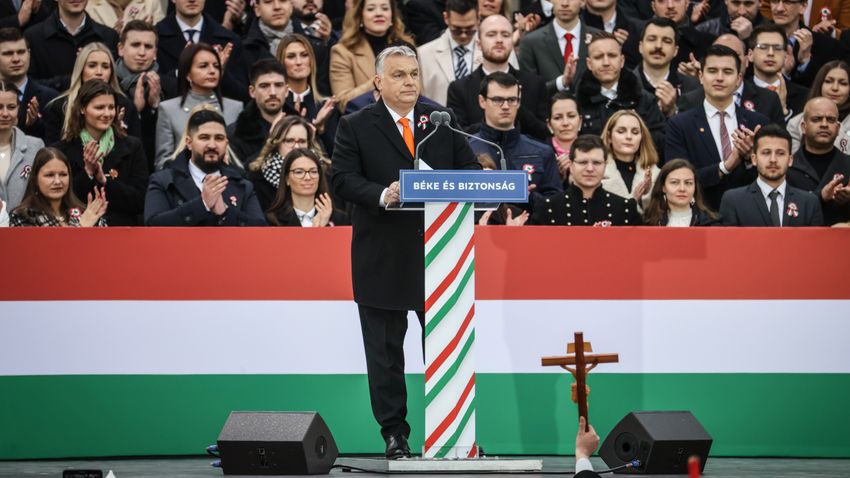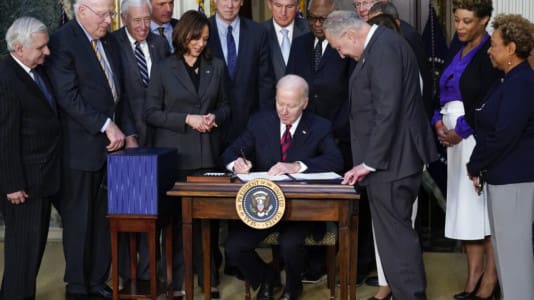With just under three weeks until the election date, the Hungarian campaign has become dominated by the war in Ukraine, with both political sides accusing the other of being on the wrong side of history.
Currently, Prime Minister Viktor Orbán’s ruling Fidesz party is pushing for Hungary to choose the peaceful path and stay out of the conflict, while the left is pushing for Hungary to enter the war and choose sides.
Both the Fidesz party and the five-party opposition coalition led by centrist Péter Márki-Zay held rallies in Budapest on March 15, the national day commemorating Hungarians’ anti-Habsburg uprising of 1848.
[pp id=27211]
“Our interest is not to become victims in someone else’s war, from which we can gain nothing but lose a lot, therefore we must stay out of this war,” Orbán told attendees of a rally on Budapest’s central Kossuth square, next to the parliament building.
“It cannot be excluded that on April 3 weapons will still be rumbling in our neighborhood, but this only heightens the immense stakes of the election,” Orbán said, telling his supporters that they faced a choice between “a pro-peace right and a pro-war left.”
At the rally of the five-party opposition coalition — which drew a significantly smaller crowd than the pro-government side — prime ministerial candidate Péter Márki-Zay said that despite many polls predicting a Fidesz victory, he remained confident in his chances.
“I don’t believe in poll numbers, I believe in miracles,” Márki-Zay said.
Márki-Zay’s coalition is mostly made up of left-wing parties, but it also includes the far-right Jobbik party, known for its history of anti-Semitic views.
Should Fidesz prevail on April 3, it would be Orbán’s fourth consecutive and fifth overall term in office. Altogether, Orbán has been at the helm of the Central European country for half the time since the 1990 regime change following the collapse of the Soviet Union.






